Caligula Episode 2: Recognising The Need For Change
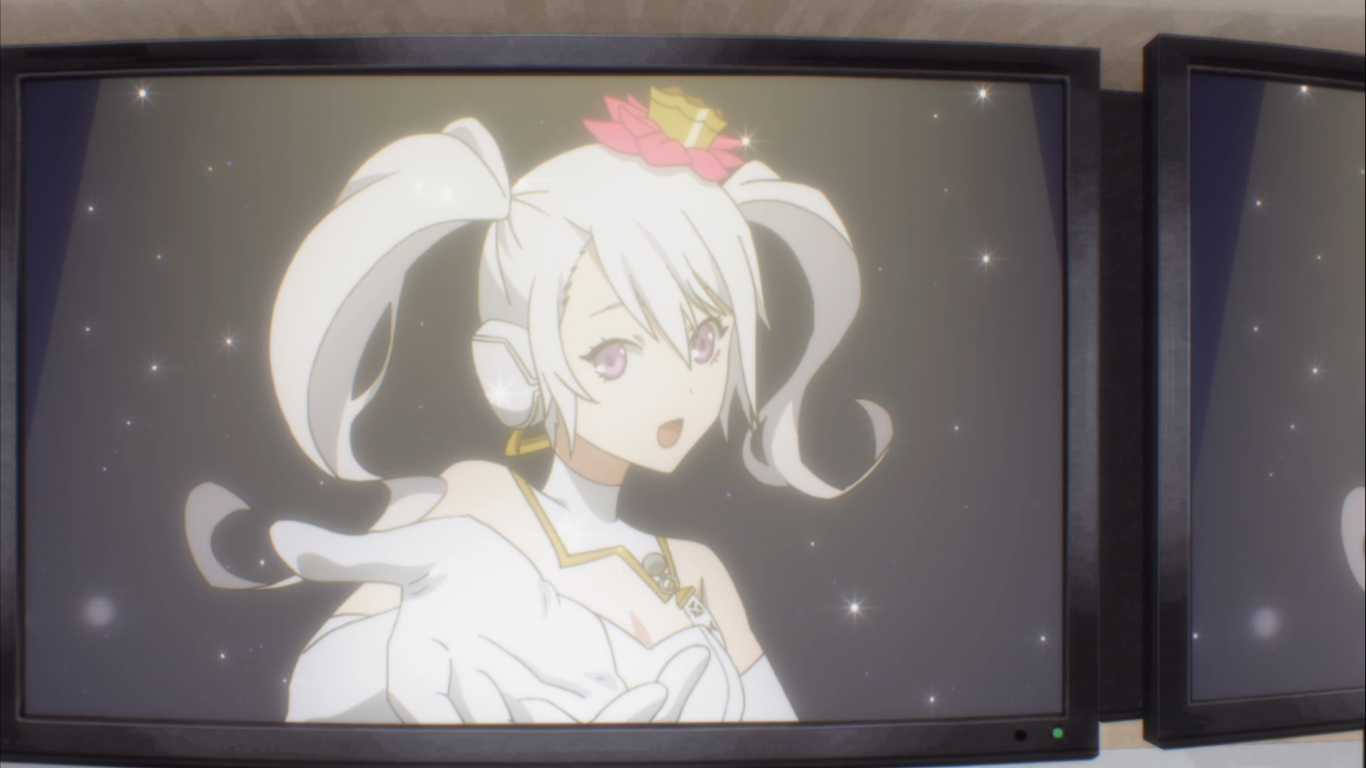
Whereas last week’s episode was more focused on steadily building up a creeping sense of paranoia, this week is an episode of revelation. The colour pallete for this episode is brighter, dialogue is less obtuse and the overall narrative is more coherent, but that’s not to say this episode is filled with exposition. In fact, there are still many questions and ways to interpret this narrative that are still being left up to our imagination. For example, even though it’s become very clear at this point that the characters are living out a virtual experience, it hasn’t yet been explicitly stated what exactly Mobius is, which of the humans living in this world are real or fake, or how the humans who are real even got here.
In this episode we learned a number of things about the students who turned into monsters at the end of the previous episode. Firstly, they only seem to chase after individuals who have noticed something regarding the nature of Mobius. We don’t know quite how specific that something is, since Ritsu is apparently now being targeted by these creatures, but isn’t yet fully aware of what he’s realised, or perhaps he isn’t willing to accept it just yet. As such these monsters seem to serve as a sort of thought police. We also know that people who still remain in the dark regarding the nature of Mobius can’t even perceive these monsters, furthermore, the monsters themselves (whether they’re humans or programs is unsure) don’t seem to be aware of the fact that they can turn into monsters. Rather, it is Mu’s music which seems to cause an immediate change in them which triggers this transformation.
We have also learned that Mu herself is not a malicious entity, rather, she seems primarily motivated by a desire to keep the citizens of Mobius happy. When people are unhappy with the state of Mobius, she sees that as a failure on the part of herself to keep those people happy, as we see at the end of the episode when she apologises and asks if there’s anything she can do to improve their lives within the system. The interesting thing here is that she seems unable to comprehend the idea that humans tend to have extreme negative reactions when they find out that they’re being lied to, or that they’re living fake lives. And why would she? Mu has only ever lived a fake existence, after all, so she would perceive Mobius to be a reality as valid as any other, or perhaps even an existence that is more valid than the real world, since Mobius can grant everybody’s wishes, whereas reality is a cruel and unjust place.
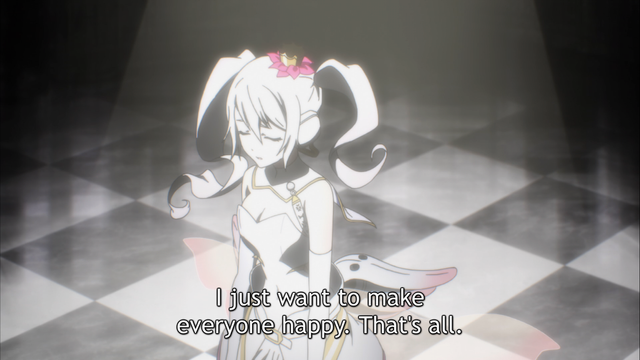
Mu’s character goes even deeper than this, however. For one thing it’s still difficult to determine if Mu is a Strong AI or a Weak AI. Put another way, we have no idea if Mu has any actual self awareness, or if she’s a machine simply making decisions based off of a complicated learning algorithm and is not actually making any of her own decisions. Mu’s first speaking role in this episode has her speaking with a woman trying to convince Mu that there is validity in her decision making, that what Mu is doing is the right thing to do. This would seem to suggest that Mu is a self aware identity that needs convincing. On the other hand, Mu doesn’t seem like she needs much convincing at all- thus we can speculate that this woman, this other entity, is controlling Mu for their own reasons. What those reasons are is unsure. It’s mentioned by a character introduced in this episode, Aria, that Mu needs to be ‘saved’, as if she has somehow been compromised, which definitely lends support to the idea that Mu simply has no idea what she’s doing and almost certainly doesn’t have bad intentions.
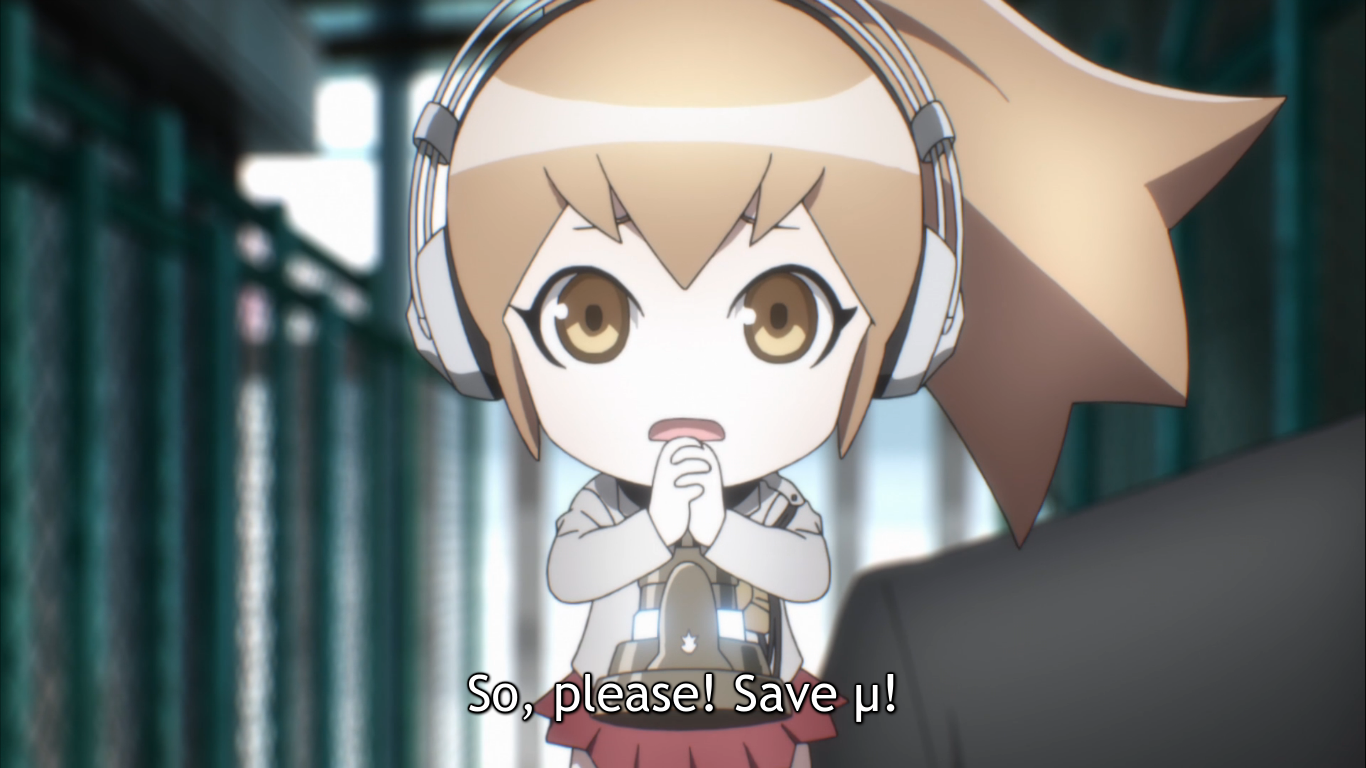
There’s also Mu’s nature as a Vocaloid to consider, as well as what I talked about last episode regarding the premise behind the series. Mu might be less of a person or an AI, and more of a symbol representing concepts and emotional baggage that the citizens of Mu carry with them, the feelings that brought them into Mobius in the first place. Since Mu is dissatisfied with reality and would rather remain in Mobius, it’s not a stretch to assume that this means the citizens of Mobius aren’t being imprisoned inside Mobius, but are instead locking themselves inside Mobius by their own will, locking themselves away from reality. When Mu plays her music across Mobius, the transformation that follows can be seen as a rallying call, a sort of patriotic anthem that reminds them of why they want to protect this fragile, isolated reality that they have created for themselves. An anthem that motivates them to seek out and destroy anything or anyone who might threaten the harmony of their existence in Mobius.
I briefly mentioned in my last review that the name of this reality, Mobius, is a reference to the Matrix. This is because Mobius is the name of an important character in that classic film, the mentor who guides Neo outside of the fictional reality constructed for humans by machines. In The Matrix, the false reality is meant to be a close reflection of our own, one where pain and inequalities still exist. It’s also one where the Agents within that system are self aware, malicious, and relentless, and the rulers of that system are motivated by a greed that seems to exist in a sort of capitalist framework, where the machines are only interested in using humans to feed themselves and further their own existence and growth. As such, those trapped within the Matrix are nothing but victims of the system. Caligula and the Matrix share a lot of ideas both in the themes and the overt plot, but there’s some very crucial differences between them that you’re probably catching onto by now. Mu is not a selfish entity, but a misguided selfless entity, the humans trapped in Mobius are victims not of Mobius itself, but of their own fragile emotions, their own misery, sadness, and depression which compelled them to voluntarily escape to Mobius in the first place. And then they continue to subconsciously protect that system from the few who are starting to ask questions about themselves and the world they’re living in. Caligula is already operating on a darker, more specific, and potentially more involving level than The Matrix was. While Caligula might squander this potential going forward, the fact that so much can already be read into it in just two episodes is already impressive.
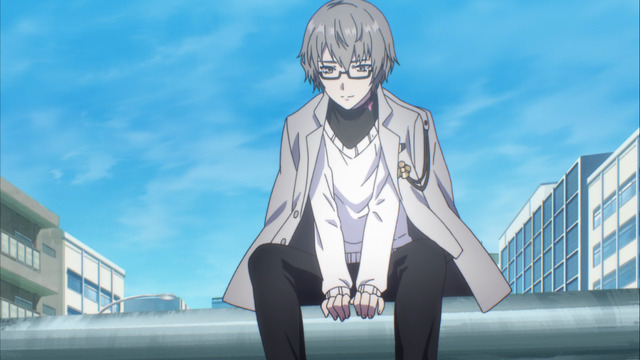
Otaku are self-critical creatures, loathsome of ourselves, even. And yet the false realities we create for ourselves, these niches, are something we strongly protect. And this goes for any community, online or offline. We know that some updates need to be made for our media, if not for cultural diversity or artistic merit, then simply for novelty. Yet even so the same kinds of shows tend to become popular, the same shows appealing to the same narrow sensibilities, the same demographics. From a marketing perspective, that’s because Highschool shows or whatever other current, derivative trend continues to sell. But on a community, and perhaps even artist’s level, it seems to reflect our own conscious or subconscious desire to not let go of our own nostalgia. To create something new, to truly reach outside the anime community to look for novel and diverse ideas, would be to destroy the reality we created to cater for ourselves, a reality that doesn’t ask us to grow, to accept the pain of living, or ask us to challenge our own base assumptions. By making media in the same tried and true molds over and over again, we can continue to keep on living in our own subconscious cultural Mobius of our own, and maliciously attack anyone who would dare try to challenge such a reality. To look outside of Otaku communities for an example of this phenomenon, you don’t have to look very far to find #GamerGate, and countless other instances in the Gaming, Otaku, and Geek communities, and you can probably also see this kind of behaviour exhibited by anyone who has belonged to any community throughout the history of civilisation.
And the final nail in our virtual cultural coffin, to prevent other people from criticising us, we criticise ourselves.
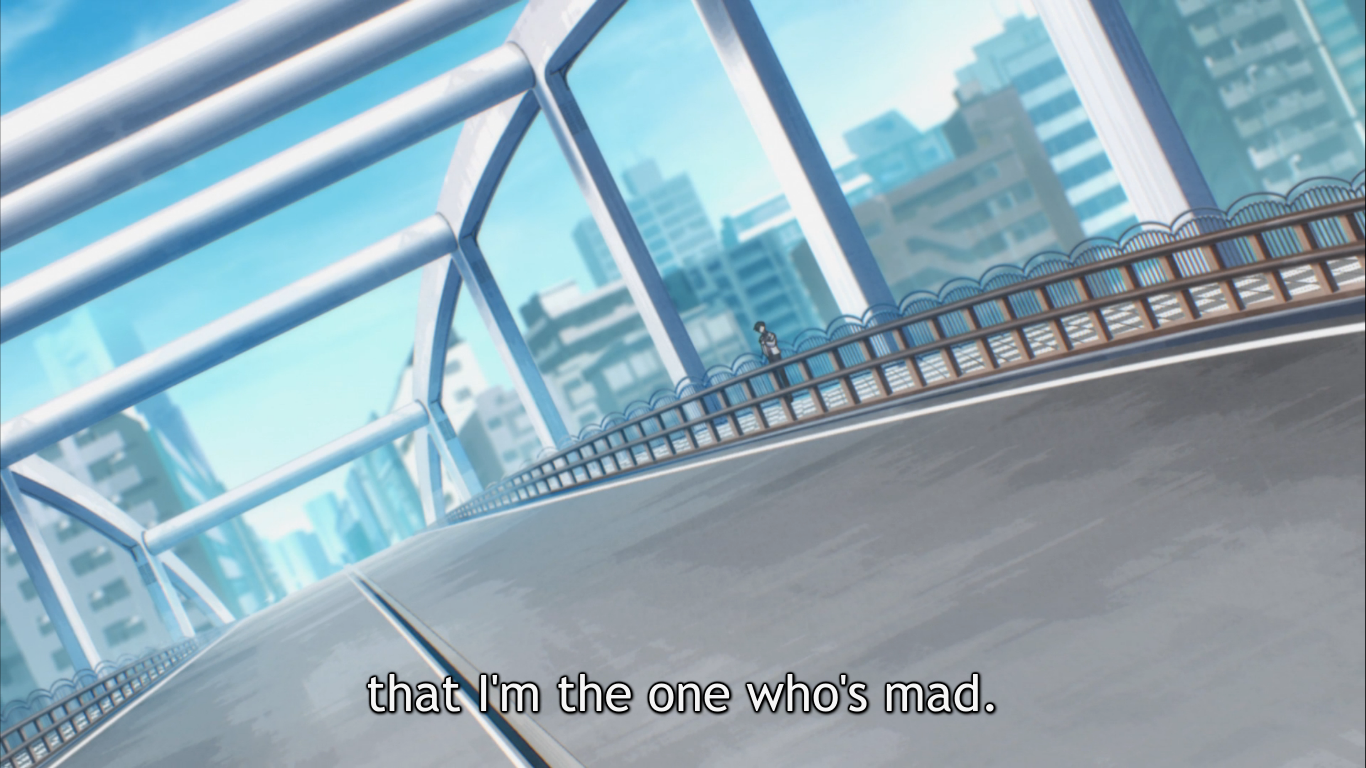
In my review of episode 1, I made the observation that Caligula could very well be using its premise as an excuse to indulge in all of the tropes it's supposedly meant to be critiquing. It’s kind of hard to imagine that the anime really hates these cliches when it introduces us to characters like Aria, a floating little girl barely larger than your head whose primary purpose so far seems to be speaking in an infuriatingly upbeat tone, providing comic relief, and overall adding nothing of thematic value so far. Don’t get me wrong, I’m sure she has plot value, I’m sure there’s stuff she knows that will be useful information, and that she’s going to do important things as well. But if her cuteness exists for its own sake, then it only reinforces the notion that Caligula wants to have its cake and eat it too in some respects. To both criticise and shamelessly enjoy its own tropes. This notion is only reinforced by the spectacle driven approach Caligula has had to its combat sequences so far, when something continuing the paranoid horror-like atmosphere from the first episode may have been more appropriate, perhaps.
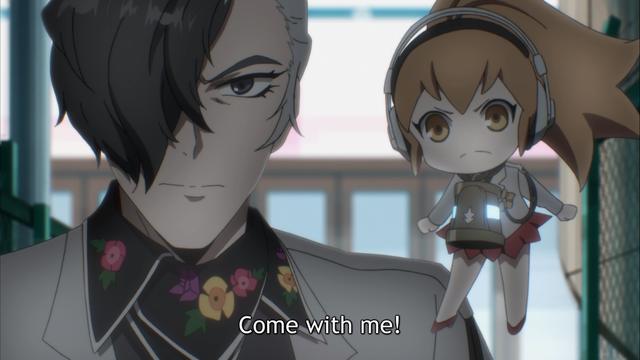
On the other hand, though, I often feel that the best critics are the people who know what they’re talking about- after all, I love Otaku and gaming culture, and I love anime. If I didn’t, I wouldn’t be talking about it. It’s very easy to see that many of us criticise ourselves as a defense mechanism, that a lot of our self loathing is a result of us criticising ourselves because we don’t want people telling us the things we really don’t want to hear, the things we know but won’t admit to ourselves even in our worst moments. On the other hand, though, the amount of care for our culture really does make us the people best qualified to fix it. It’s telling, then, that the threat to Mobius as a society isn’t coming from outside forces in the real world, but from individuals who had already been assimilated into its system, people who had cared enough to enter Mobius in the first place. Much like how it will be up to them to break free from and potentially make changes to the system, in the real world, it’s going to be up to the community itself, not outside forces, to learn, change, grow, and accept different realities into our lives.
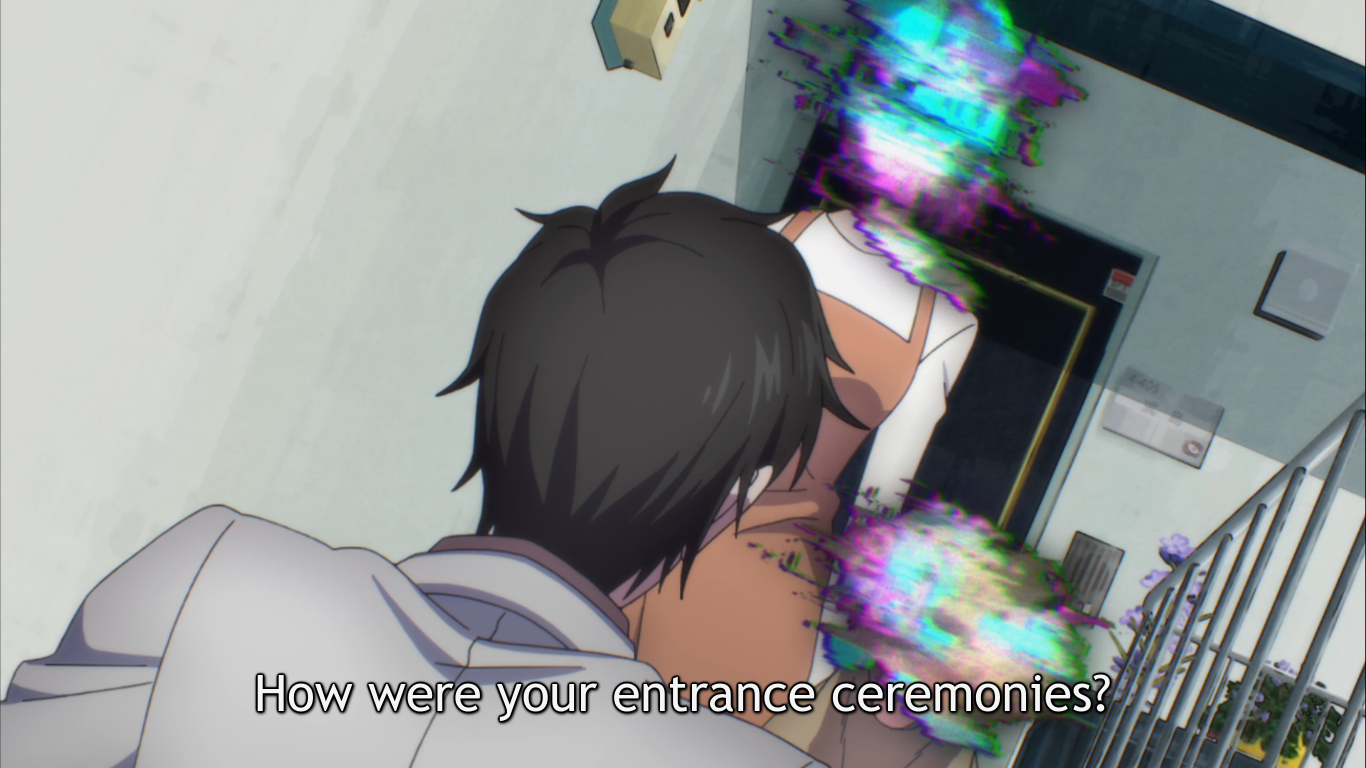
This weeks episode of Caligula didn’t feel quite as strong or as focused as last weeks, but goddamn, there’s a lot for me to talk about with this one. For the time being, at least, Caligula is interesting to me in a way that transcends its quality. And for those who just want some good entertainment, yes, Caligula still remains quite fun and engaging to watch.